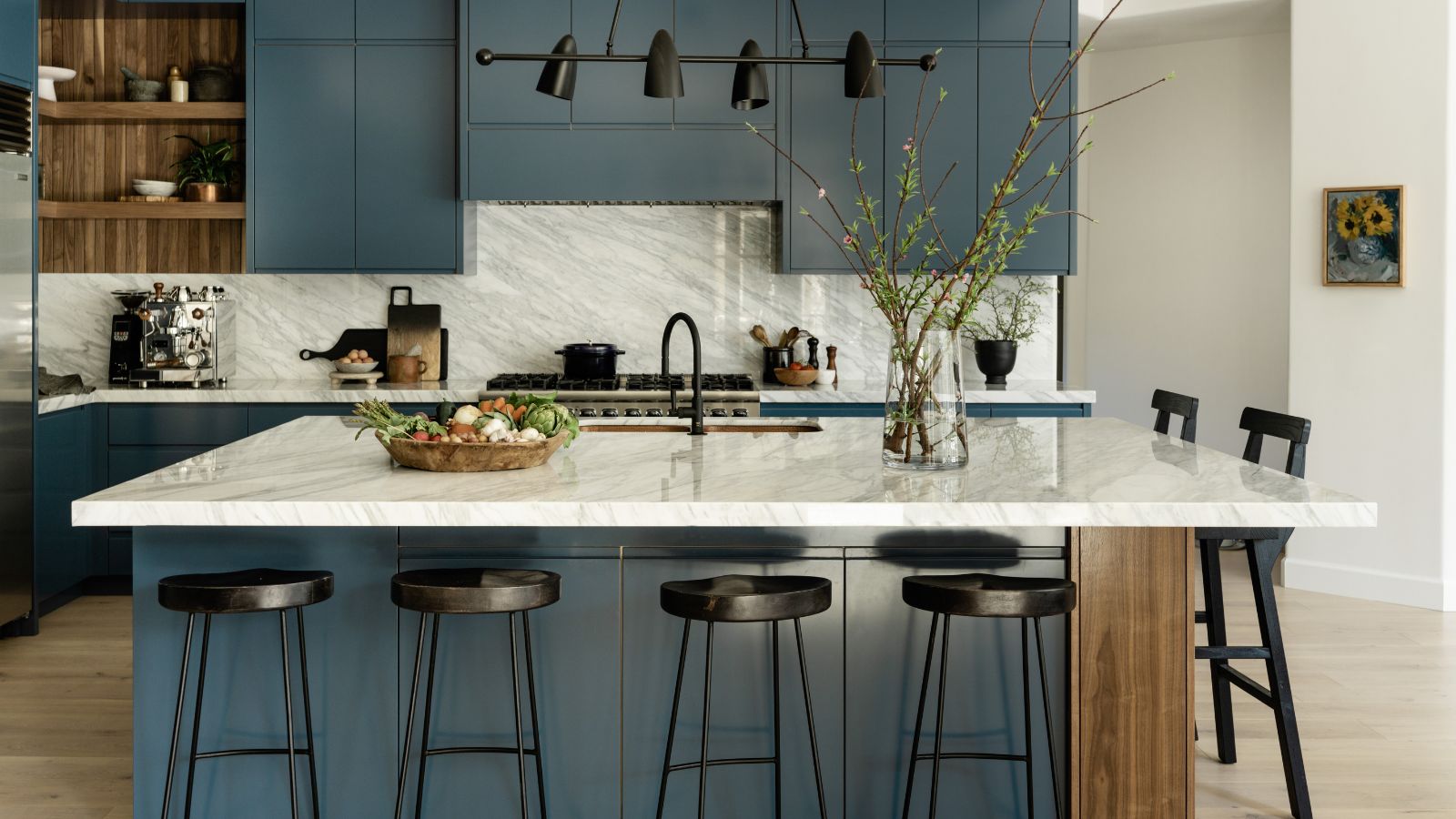
Keeping on top of your endlessly growing list of household tasks can often feel overwhelming, and with such a wealth of cleaning tips available online, it can be difficult to know what to trust. As if keeping your space clean and sparkling isn't enough of a chore, using the wrong cleaning products could actually be hindering your home more than helping, adding unnecessary cleaning tasks and damaging your surfaces.
It can often be easy to grab the closest bottle of spray cleaner, or assume that all cleaning products will work on all surfaces, but knowing what to use where is essential for protecting your home and keeping your surfaces spotless.
5 ways to avoid countertop damage
Here, cleaning experts share their top tips on which cleaning myths to avoid to prevent damaging your countertops, as well as what to use instead.
1. Multi-purpose cleaners
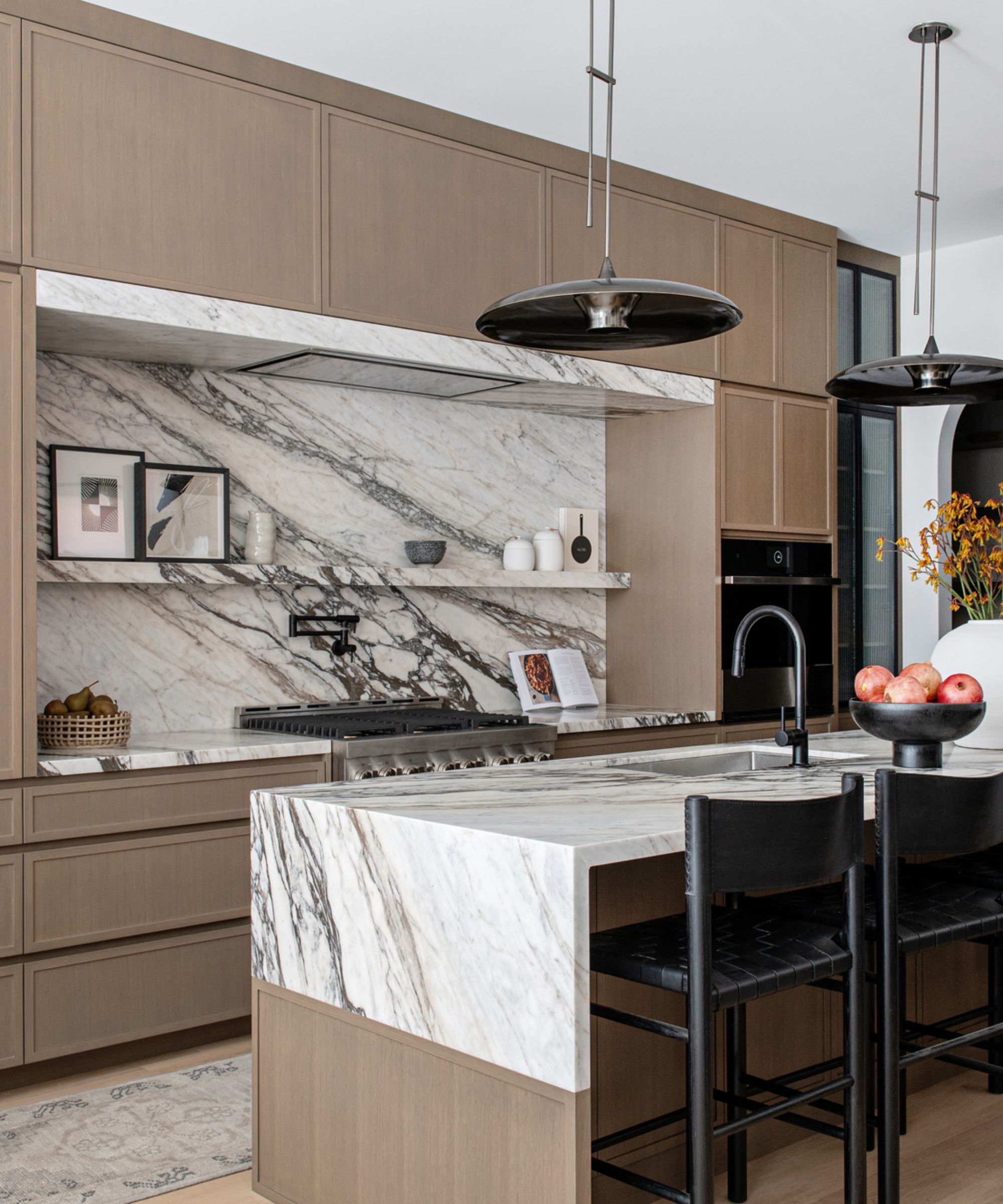
While multi-purpose cleaners are often billed as being convenient for use around your entire home, it's important to check that they are actually suitable for the surface you are tackling.
'For most of the house, they are a great alternative, time and space saver,' says Ross Pascale, cleaning expert and director at Neeet House Cleaning. 'However, always read the labels as they might be too harsh for delicate countertops like granite or marble. These surfaces need specific cleaning products to avoid dulling or etching.'
Ross recommends a mild dish soap diluted with water as a safe bet for everyday cleaning on most surfaces, particularly if you're wondering how to clean marble countertops, which also prevents your cupboards from overflowing with unused or unnecessary cleaning products.
Some surfaces, such as wood or granite, may require something more specific, so, as Pascale recommends, always check before use. 'While using these products once or twice in a pinch likely won't cause any harm, regular use can lead to noticeable damage,' says Taylor Riley, cleaning expert, founder of Boom Facility Service Advisors and co-founder of Impact Cleaning Professionals.
Instead, match your cleaner to your countertop. If cleaning granite or marble, opt for a special stone cleaner and mild solution. 'When it comes to wood, the easiest way to keep countertops clean is to wipe them with a mixture of a few drops of dish soap in a bowl of warm water,' recommends Riley. 'This mild solution effectively cleans without causing damage.'
It's important to remember, too, that wood and granite both benefit from periodic maintenance to protect them from water and staining. 'This can be accomplished by applying a thin coat of food-grade mineral oil, which helps create a protective barrier to prevent water damage,' adds Riley.
2. Using Vinegar
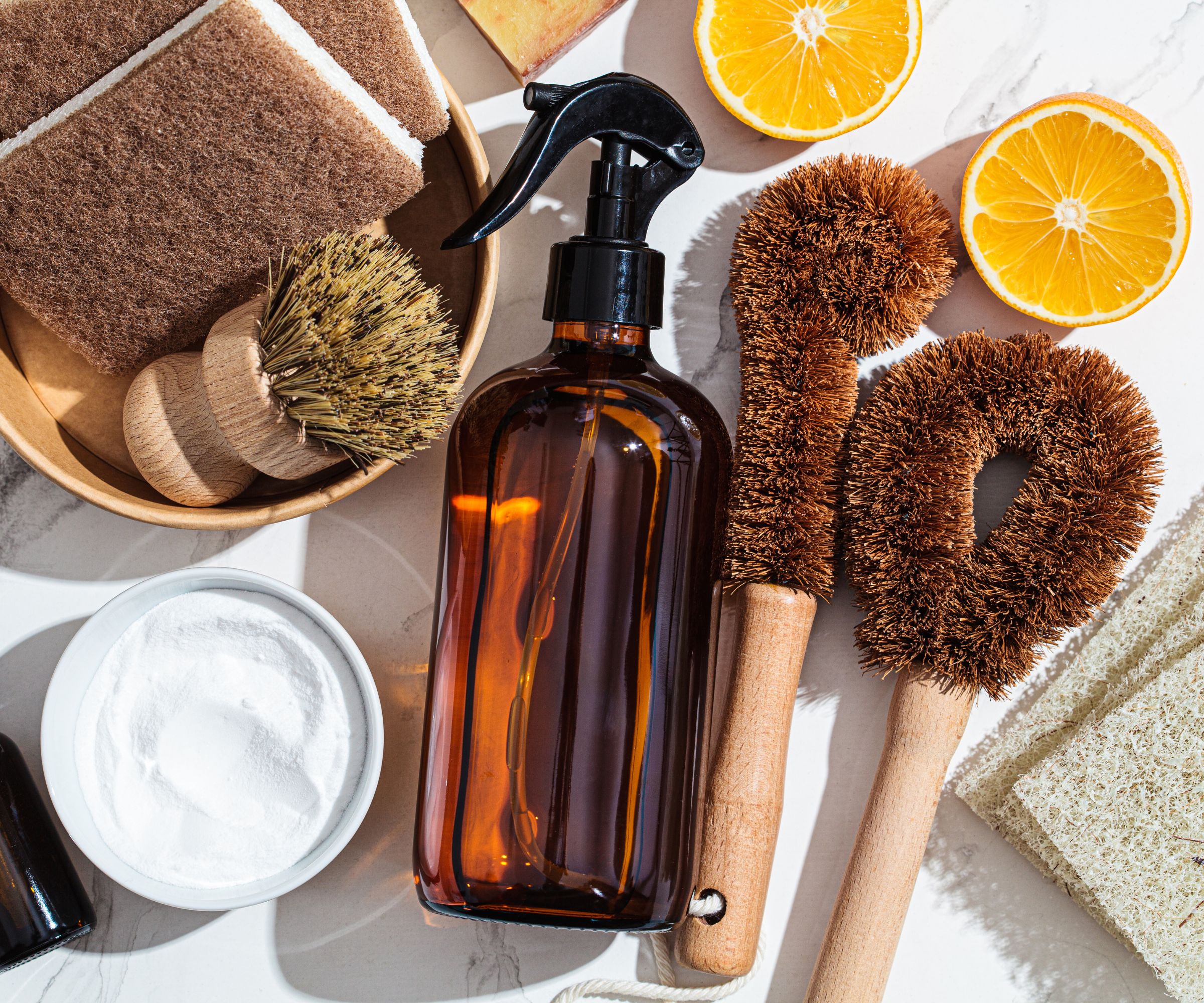
Vinegar is a common household item and an often-dubbed natural alternative to chemical cleaning products. Importantly, though, while natural, vinegar can often be too acidic for some countertops, particularly granite and marble, so it's good to know where to clean with vinegar, and what not to.
'It can actually break down the sealant and leave your countertop vulnerable to stains,' says Pascale. To avoid any counteractive cleaning, or dulling the shine of your countertop, it's important to use vinegar wisely. 'It can be a great cleaner for stainless steel appliances or glass surfaces, but skip it on countertops like granite or marble and opt for a neutral cleaner instead,' says Pascale.
Riley recommends simply using a few drops of dish soap dissolved in a bowl of warm water but warns that this may leave a cloudy residue over time. 'For best results, I recommend Method Daily Granite Cleaner Spray, available at Walmart. This daily cleaner is plant-based and effectively cleans granite without causing harm to the porous surface or leaving behind any residue,' he adds.
3. Being heavy-handed

If your surface isn't looking its best, beautiful self, it may be tempting to use a heavy hand with your cleaning products. 'Using too much cleaning product doesn't magically make your countertop cleaner,' warns Pascale. 'In fact, the excess product can leave behind a filmy residue, attracting more dirt and grime.'
To avoid adding unwanted tasks to your cleaning schedule, using a less-is-more approach is the way forward. 'A little cleaning product goes a long way! Follow the directions on the label and avoid using excessive amounts,' says Pascale.
Another simple way to avoid this is to wipe down your surface after cleaning. 'I recommend using the minimum amount needed and wiping away any excess,' says Eliana Coca, professional cleaner and owner of E.C. House Cleaning.
4. Mixing cleaning products
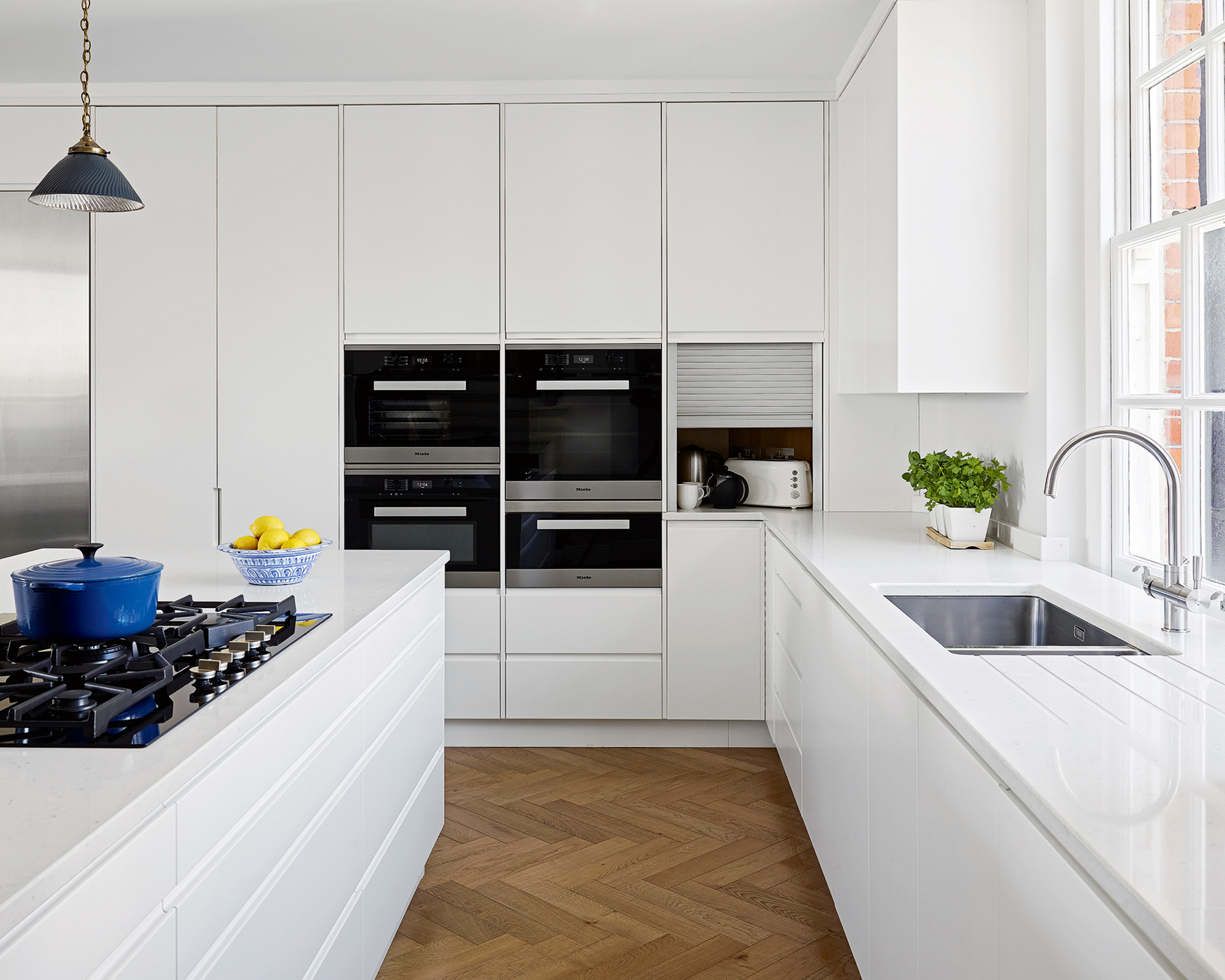
Another common myth is that mixing cleaning products will create a super-cleaner. Importantly, mixing products may be dangerous and toxic, and can also permanently damage your countertops.
'The chemicals can react,' says Coca. 'It’s best to use a single product formulated for the specific countertop material.'
That way you avoid any risks to yourself or your kitchen, and ensure that your surfaces are effectively cleaned.
5. Scrubbing stains
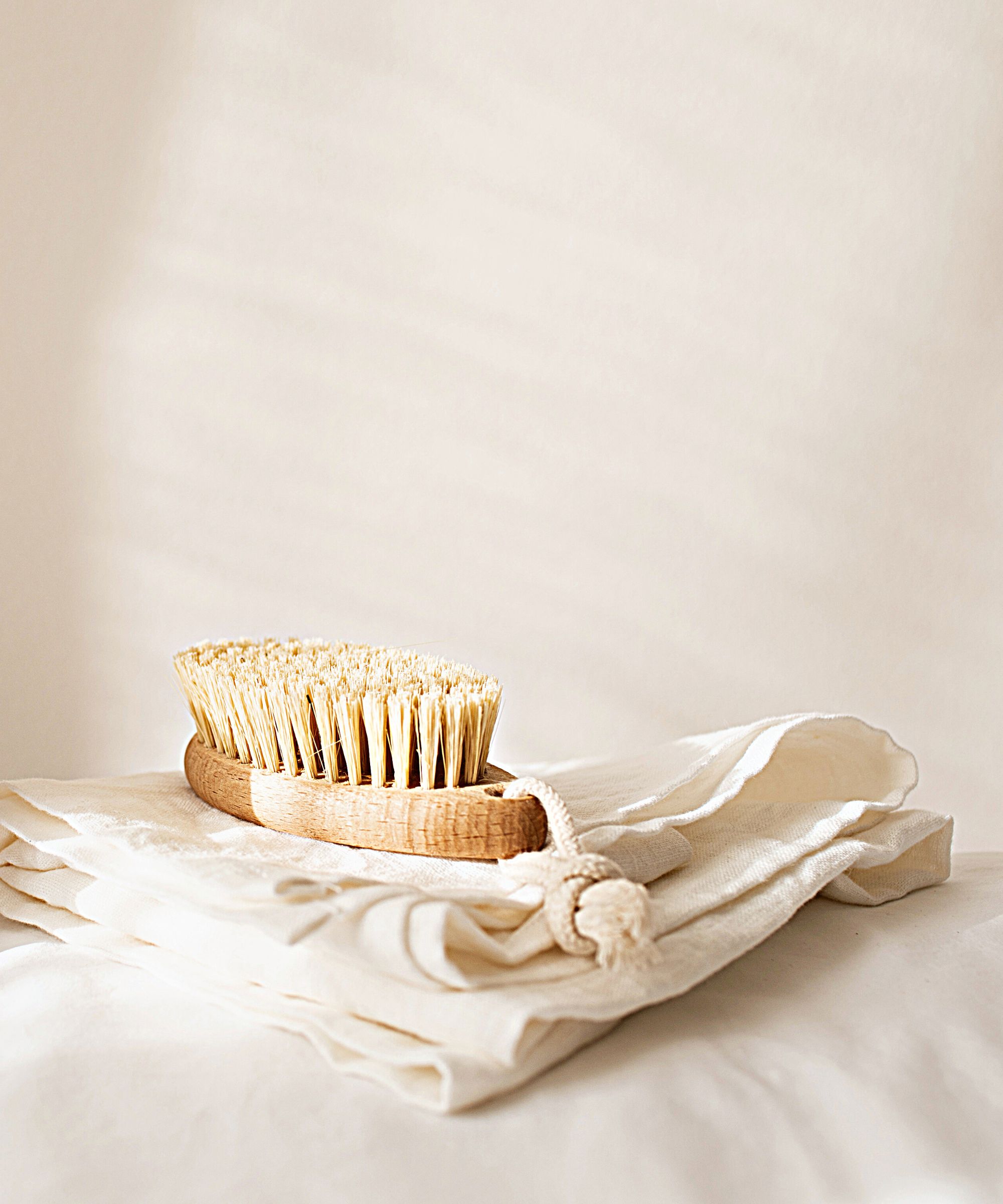
It can be so tempting to really scrub at stubborn stains, but in reality, this may be causing more damage than doing good.
'Scrubbing stains with abrasive tools is not effective, and can damage the surface and finish,' says Coca. 'It’s better to blot stains immediately and reseal countertops regularly to prevent stains in the first place. Gentle, non-abrasive cleaners and tools should be used,' such as pH-neutral stone cleaners and soft scrubbing pads.
With these expert approved tips, you can be sure to never make a cleaning myth mistake again!
FAQs
How often should you wash your countertops in the kitchen?
The short answer is every day. As your kitchen counters are one of the most used areas in your home, they should be wiped down with a mild soap and water solution, or just water, at least once a day, if not more. This will prevent any stains from sticking and also keep nasty bacteria at bay.
Prioritize a deep clean at least once a week, to ensure your countertops are effectively cleaned and sanitized.
What are the best countertops to avoid stains?
If you are thinking of renovating your kitchen, this might be an important thing to consider. All countertops have pros and cons, but, other than stainless steel, no countertop is completely resistant to staining.
The next best thing is quartz, which not only looks striking and beautiful but is also highly stain-resistant. As it is engineered with a mixture of stone and resin, it is a non-porous material that won't allow stains to sink into your countertop.
It is also much easier to maintain than wood or granite, as no sealer is required to maintain this quality. It is on the pricier side, but it will retain its value for years of use in the kitchen, making it a perfect choice for your home.







